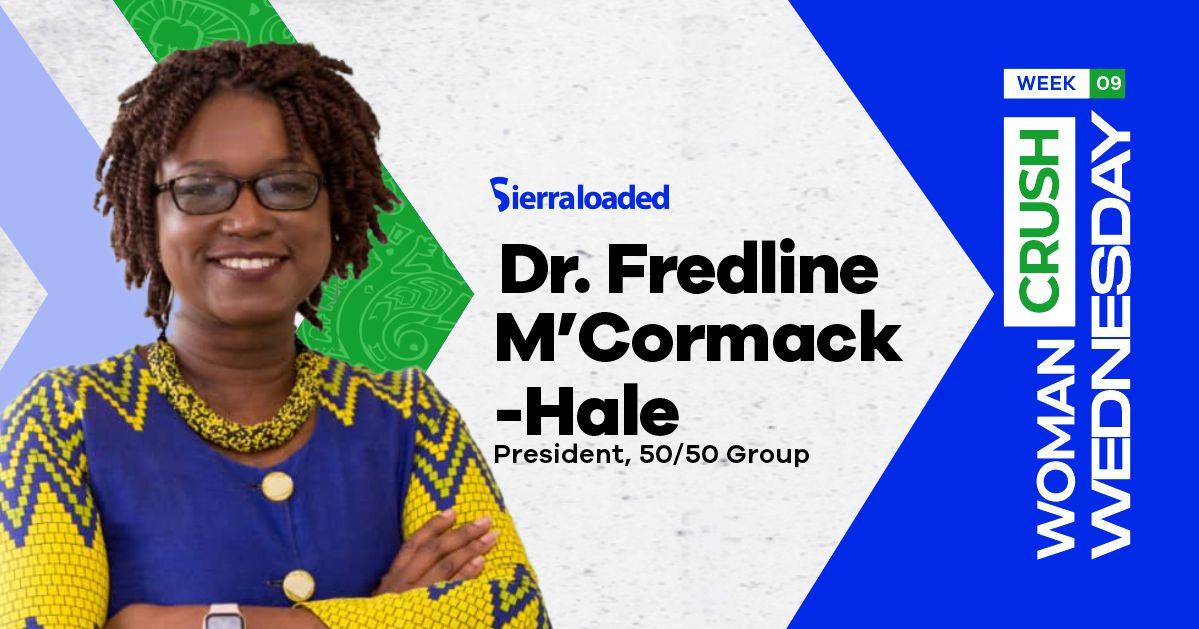Meet our Woman wonder for this week, Dr. Fredline M’Cormack-Hale
Dr. Fredline M’Cormack-Hale is 50/50 Group president, Associate Professor at Seton Hall University, School of Diplomacy and International Relations, where she teaches courses in the Africa and post-conflict specializations.
A comparativist by training, with a regional focus on Africa (particularly, Sierra Leone), her research interests include the political economy of post-war states, with a focus on questions around gender and development, state accountability in service delivery (particularly health and education), and the interplay between the international aid community and national governments. She was was drawn to research in diplomacy, social justice, and political development in large part thanks to her upbringing in African countries, including Sierra Leone and Kenya.

One of her projects funded by the World Bank, examined Sierra Leone’s health and education sectors. The team works with the necessary ministries to work with citizens to transform education and health in their areas and study the outcome of these efforts.
She is passionate about promoting women’s empowerment and gender equality and conducting transformative research: engaging with policy makers on research outputs for policy uptake.
M’Cormack-Hale was recently elected as president of Sierra Leone’s 50/50 Group, which works to get more women into political power and policymaking, and she advocates for equal representation and gender parity. Part of her research has informed the group’s advocacy work.
At the School of Diplomacy and International Relations, M’Cormack-Hale is head of online learning. The school’s fully online programs include an Executive M.S. in International Affairs, an Executive M.S. in International Affairs and Diplomatic Practice in partnership with the United Nations Institute for Training and Research (UNITAR), as well as a Certificate in Post-Conflict State Reconstruction and Sustainability.
M’Cormack-Hale designs coursework for her students so they can explore conflict, resolution, and peacebuilding throughout the world, including case studies on Afghanistan, the former Yugoslavia, Rwanda, Iraq, and the United States. Some of her students are field practitioners, including former ambassadors, while others are switching careers with the desire to work for United Nations, non-governmental organizations or intergovernmental organizations.
Her recent publications include the co-edited volume, “War, Women and Post Conflict Empowerment: Lessons from Sierra Leone” (Bloomsbury Publishing, 2022) (with Josephine Beoku-Betts).
She won several research and scholarship awards from international and national institutions. She was awarded the Outstanding Teacher of the Year, University of Florida Anderson Scholars, 2008.


 Post a comment
Post a comment








